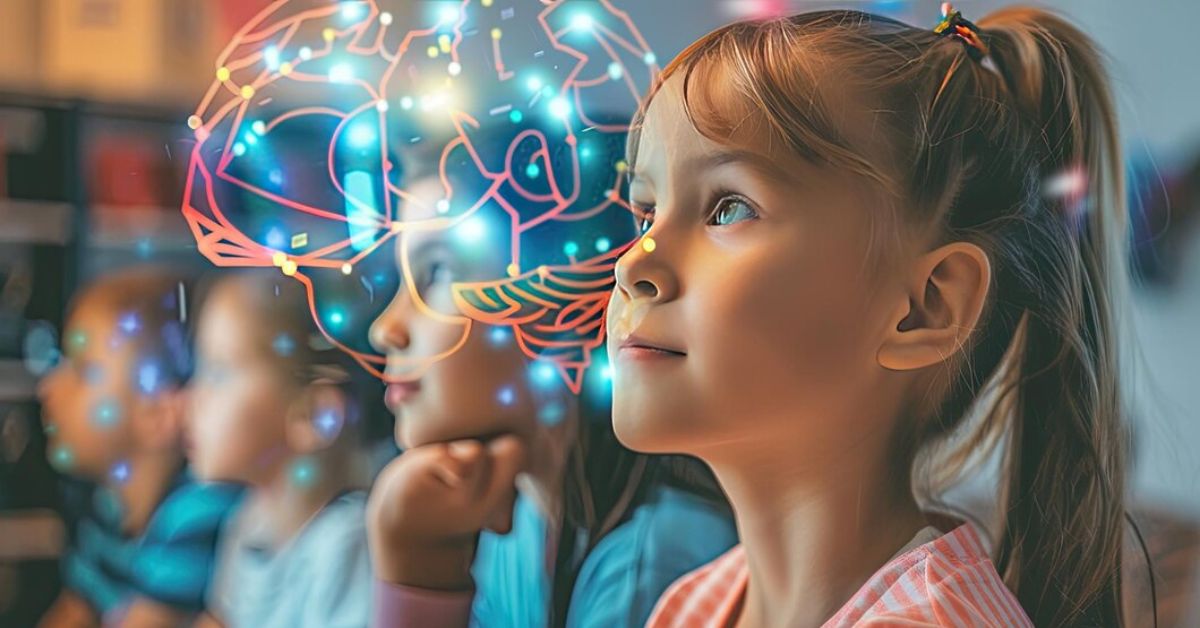Nurturing Young Minds for Tomorrow Foundations of Early Childhood Education
This blog explores the vital role of early childhood education in shaping a child’s future. It highlights essential principles for parents, educators, and child development experts, offering insights into how early learning experiences influence growth and success.
The Crucial Early Years
The early years of a child’s life are pivotal, serving as the groundwork for their future. During this period, children undergo rapid physical, cognitive, and emotional development, setting the stage for lifelong learning and adaptation. Research shows that the experiences and stimuli provided during these formative years significantly influence brain development, emphasizing the importance of quality education and nurturing environments.
Developmental milestones provide a roadmap for a child’s growth and progress. From learning to walk and talk to developing social skills, these milestones help parents and educators track a child’s development. Early childhood education plays a crucial role in supporting these milestones by offering structured yet flexible learning experiences.
Understanding the significance of these early years allows parents and educators to create supportive environments that cater to each child’s unique developmental needs. By recognizing and nurturing these needs, we can help children reach their full potential and lay the foundation for future learning and success.
The Educator’s Role
Educators are instrumental in shaping the learning environment for young children. They provide a nurturing space where children feel safe, respected, and valued, allowing them to explore, learn, and grow. The educator’s role extends beyond teaching basic skills; it involves fostering curiosity, encouraging problem-solving, and promoting social-emotional development.
Effective early childhood educators possess qualities that make them adept at understanding and responding to children’s needs. Patience, empathy, and adaptability are essential traits that enable educators to connect with children and support their individual learning journeys. Additionally, an educator’s ability to create engaging and developmentally appropriate learning experiences is vital in maintaining a child’s interest and enthusiasm for learning.
By acknowledging the significant role educators play in early childhood education, we can better appreciate the dedication and expertise required to guide young minds. Supporting educators through professional development and resources is crucial in ensuring they continue to provide high-quality learning experiences for children.
Exploring Educational Philosophies
Several educational philosophies guide early childhood education, each offering unique perspectives on how children learn best. Montessori, Reggio Emilia, and Waldorf are among the most popular approaches, each with distinct principles and applications in early learning environments.
The Montessori method emphasizes independence and self-directed learning, allowing children to explore at their own pace. With a focus on hands-on experiences and individualized learning plans, Montessori classrooms encourage children to take charge of their learning.
Reggio Emilia, on the other hand, views children as active participants in their education. This approach emphasizes collaboration, creativity, and communication, encouraging children to express themselves and engage with their surroundings. Teachers act as facilitators, guiding children through projects and activities based on their interests.
Waldorf education prioritizes holistic development, nurturing a child’s intellectual, artistic, and practical skills. Through a balanced mix of academics, arts, and play, Waldorf schools create a harmonious learning environment that fosters creativity, imagination, and a love of learning.
Understanding these educational philosophies allows parents and educators to choose the approach that best aligns with their values and goals for early childhood education.
Best Practices for Fostering Learning
Creating a learning environment that promotes curiosity, exploration, and positive social interactions is essential for early childhood education. By incorporating best practices, educators can design spaces that inspire young learners and support their developmental needs.
A well-designed learning environment should be inviting, organized, and adaptable, allowing children to explore and engage with different materials and activities. Incorporating a variety of age-appropriate teaching materials and resources encourages children to experiment, discover, and develop new skills.
Developing age-appropriate teaching materials and activities requires careful consideration of a child’s developmental stage and interests. Activities should be challenging yet achievable, promoting a sense of accomplishment and motivation for further learning. Incorporating play, hands-on experiences, and real-world connections enhances the learning process and fosters a deeper understanding of concepts.
By implementing these best practices, educators can create dynamic and responsive learning environments, like those in Salt Lake City preschools, that cater to the diverse needs of young learners, setting the stage for lifelong success.
The Power of Play
Play is a fundamental aspect of early childhood education, offering numerous benefits for cognitive, social, and emotional development. Through play, children learn to explore, experiment, and problem-solve, building critical thinking skills and creativity.
Play-based learning activities provide opportunities for children to develop social skills, such as cooperation, negotiation, and empathy. By engaging in group play, children learn to communicate effectively, share, and collaborate with their peers.
The cognitive benefits of play include improved memory, attention, and language skills. Activities that encourage imaginative play and storytelling enhance a child’s ability to think abstractly and develop complex ideas.
Examples of play-based learning activities include role-playing, building with blocks, and engaging in arts and crafts. These activities promote creativity, imagination, and a love of learning, helping children develop essential skills for future success.
Building Strong Partnerships with Parents
Engaging parents in the learning process is crucial for supporting children’s development and success. By building strong partnerships with parents, educators can create a collaborative learning environment that extends beyond the classroom.
Effective communication between educators and parents fosters trust and understanding, allowing both parties to share insights and strategies for supporting a child’s learning. Regular updates, newsletters, and parent-teacher conferences provide opportunities for meaningful dialogue and collaboration.
Involving parents in their child’s education encourages a sense of ownership and commitment to the learning process. Educators can offer resources and guidance for parents to support learning at home, such as reading activities, educational games, and strategies for fostering curiosity and exploration.
By working together, educators and parents can create a supportive and nurturing environment that empowers children to reach their full potential.
Conclusion
Now that we have explored the philosophies and best practices of Reggio Emilia and Waldorf education, it is clear that both approaches prioritize holistic development and a child-centered learning environment. By understanding these educational methods and incorporating their principles into early childhood education, we can create enriching and engaging experiences for young learners.





